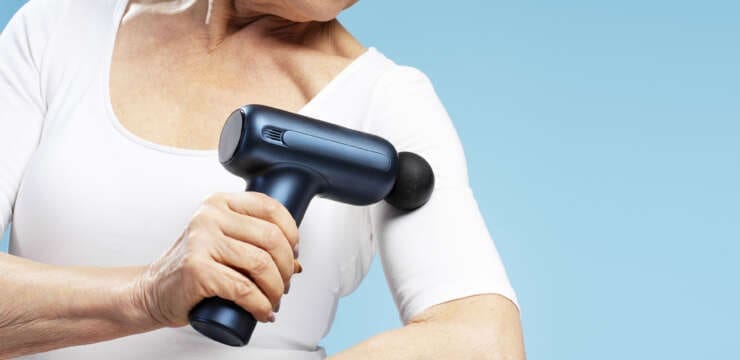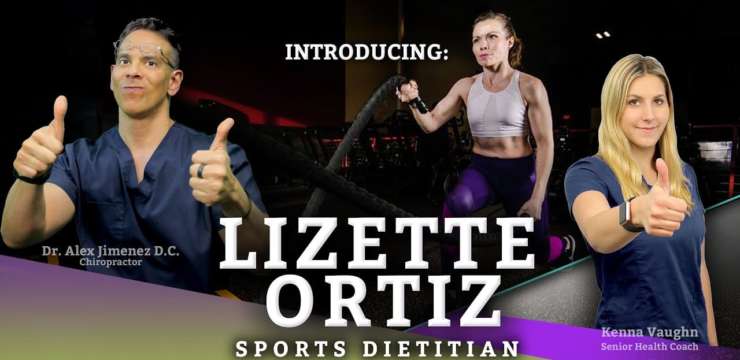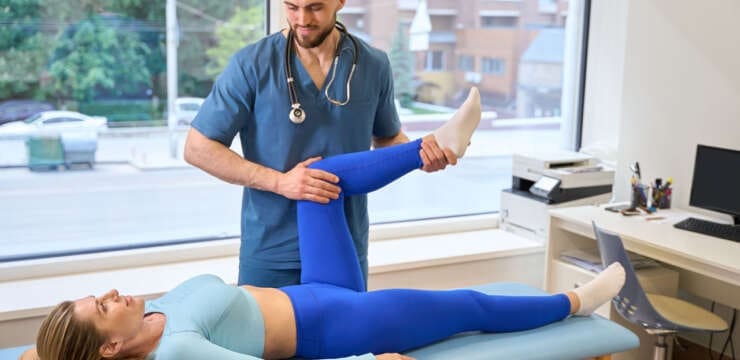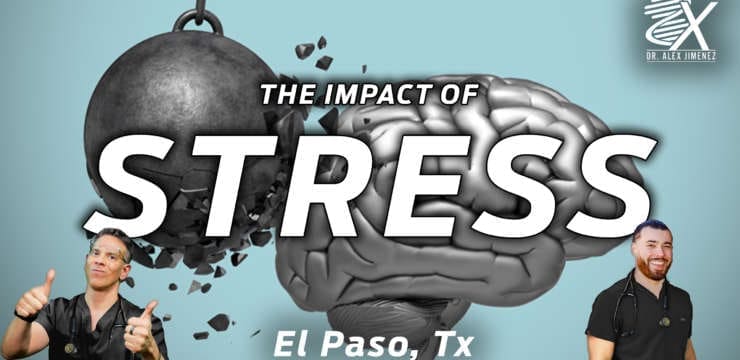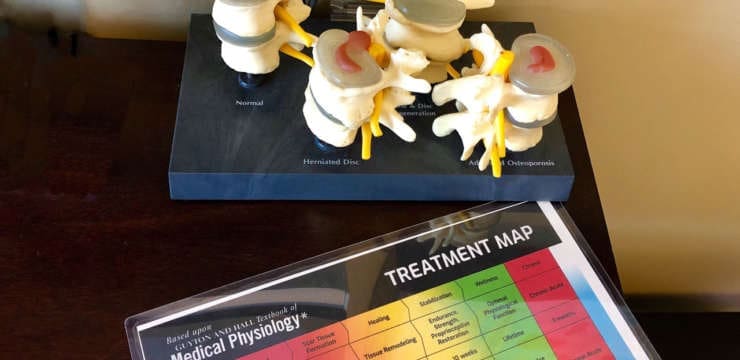
Find relief from myofascial pain syndrome with specialized chiropractic care techniques designed to reduce pain and improve mobility.
Table of Contents
Chiropractic Care for Myofascial Pain Syndrome: Natural Relief, Root Causes, and Your Path to Wellness
Hey there, pain warriors! Ever feel like your muscles are throwing a secret party—knotty, achy, and refusing to let you join the fun? That’s myofascial pain syndrome (MPS) gatecrashing your day, turning simple moves into a comedy of errors. But fear not; chiropractic care is like the wise party pooper who gently clears the room with hands-on magic, easing those trigger points without the drama of drugs or surgery. In this epic guide (over 5,000 words of straightforward, science-backed goodness), we’ll unpack what MPS is, its sneaky causes and symptoms, how it messes with your musculoskeletal system, and why environmental factors like stress or pollution can turn up the volume on your pain. We’ll spotlight how chiropractic care, teamed with nonsurgical treatments, slashes inflammation, releases those muscle knots, and gives you a head start on a vibrant wellness journey. Plus, we’ll weave in clinical insights from Dr. Alexander Jimenez, DC, APRN, FNP-BC, a top El Paso expert who’s all about linking your injuries to cutting-edge diagnostics for real, lasting relief. Think of this as your playbook for evicting MPS—no eviction notice required, just smart, natural strategies!
We’ll keep it easy-breezy, like chatting over smoothies (or ice packs). If MPS has you feeling tied in knots, chiropractic care might just untangle things. Let’s roll!
What Is Myofascial Pain Syndrome? The Basics
Let’s kick off with the fundamentals. Myofascial pain syndrome, or MPS, is like a stubborn cramp that sets up camp in your muscles and the fascia—the tough, spiderweb-like connective tissue that wraps around them like cling wrap (Mayo Clinic, 2024a). It’s a chronic pain condition where hypersensitive spots, called trigger points, form in tight muscle bands, causing local aches or even zapping pain to distant body parts, known as referred pain (Cleveland Clinic, 2023a). Unlike a one-off muscle pull from a weekend hike, MPS lingers, making everyday tasks like stretching for a high shelf or walking the dog feel like an uphill battle.
At its heart, MPS is a musculoskeletal disorder, zeroing in on those knotty trigger points rather than widespread tenderness like in fibromyalgia (Shah et al., 2015). It’s super common—up to 85% of people might tangle with it sometimes—and it plays no favorites; desk jockeys, athletes, and couch potatoes alike can get snagged (Gerwin, 2010). The silver lining? It’s highly treatable, especially with chiropractic techniques that target those trigger points head-on, no meds or incisions needed.
Humor alert: MPS is like your muscles deciding to host a flash mob—knots dancing everywhere—but chiropractic care is the DJ who changes the tune to “relax”!
References
- Cleveland Clinic. (2023a). Myofascial pain syndrome: What it is, symptoms & treatment. my.clevelandclinic.org/health/diseases/12054-myofascial-pain-syndrome
- Gerwin, R. D. (2010). Myofascial pain syndrome. In S. Mense & R. D. Gerwin (Eds.), Muscle pain: Diagnosis and treatment (pp. 15–83). Springer. doi.org/10.1007/978-3-540-85021-2_2
- Mayo Clinic. (2024a). Myofascial pain syndrome – Symptoms and causes. www.mayoclinic.org/diseases-conditions/myofascial-pain-syndrome/symptoms-causes/syc-20375444
- Shah, J. P., Thaker, N., Heimur, J., Aredo, J. V., Sikdar, S., & Gerber, L. H. (2015). Myofascial trigger points then and now: A historical and scientific perspective. PM&R, 7(7), 746–761. doi.org/10.1016/j.pmrj.2015.01.024
Causes of Myofascial Pain Syndrome: The Hidden Triggers
MPS doesn’t just pop up—it’s often sparked by a mix of physical, emotional, and environmental factors that overload your muscles and fascia (StatPearls, 2023a). Physical trauma is a prime suspect: a slip on icy stairs, a fender-bender whiplash, or repetitive strain from assembly line work or marathon typing sessions can create tiny muscle tears, forming those pesky trigger points (Jimenez, 2016). Overuse is another culprit—think a painter’s shoulder from constant overhead reaches or a runner’s calves from pounding pavement without rest (Healthline, 2024).
Poor posture sneaks in too: slouching at your desk or hunching over your phone tightens neck and shoulder muscles, setting the stage for knots (WebMD, 2024). Emotional stress amps it up—clenching your jaw during a tense meeting or tensing up in traffic can make muscles rigid, inviting trigger points (Medical News Today, 2022). Now, environmental factors? They’re the silent accomplices: cold, damp weather can stiffen muscles (like shoveling snow in winter chills), while vitamin D deficiency from indoor lifestyles weakens tissues (StatPearls, 2023b). Air pollution or toxins irritate the system, ramping up inflammation, and even ergonomic nightmares like a bad office chair contribute by promoting poor alignment (PMC, 2024).
Dr. Alexander Jimenez highlights that in his practice, MPS often stems from everyday stressors, such as prolonged sitting, which leads to postural imbalances that strain the upper back (Jimenez, 2016). Systemic factors like sleep deprivation, chronic infections, or hormonal imbalances (e.g., thyroid issues) can also play a role, making MPS a perfect storm of modern life (AAPM&R, 2024).
Humor: Causes of MPS? It’s like your muscles collecting bad habits like stamps—posture slumps, stress stamps, and cold weather postmarks—time to cancel that subscription!
References
- AAPM&R. (2024). Myofascial pain | PM&R KnowledgeNow. now.aapmr.org/myofascial-pain/
- Healthline. (2024). Myofascial pain: Treatment, symptoms, causes, and more. www.healthline.com/health/myofascial-pain
- Jimenez, A. (2016, August). How to ease & treat myofascial pain syndrome. El Paso Chiropractor Blog. www.elpasochiropractorblog.com/2016/08/how-to-ease-treat-myofascial-pain.html
- Medical News Today. (2022). Myofascial pain syndrome: Causes, symptoms, and treatment. www.medicalnewstoday.com/articles/myofascial-pain-syndrome
- PMC. (2024). Myofascial pain syndrome: An update on clinical characteristics, etiopathogenesis, diagnosis, and treatment. pmc.ncbi.nlm.nih.gov/articles/PMC11998975/
- StatPearls. (2023a). Myofascial pain syndrome. www.ncbi.nlm.nih.gov/books/NBK499882/
- StatPearls. (2023b). Myofascial pain. www.ncbi.nlm.nih.gov/books/NBK535344/
- WebMD. (2024). Myofascial pain syndrome (chronic soft tissue pain). www.webmd.com/pain-management/myofascial-pain-syndrome
Symptoms of Myofascial Pain Syndrome: The Red Flags
MPS symptoms can be sneaky, starting as a dull ache and building to a full-blown nuisance. The main event is deep, throbbing muscle pain that feels like a persistent bruise, often worsening with activity or pressure (Mayo Clinic, 2024b). Trigger points steal the show: these tender knots, when poked, cause sharp local pain or shoot discomfort elsewhere—like a back knot zinging down your leg (Cleveland Clinic, 2023b).
You’ll spot taut, stringy muscle bands, restricted movement (turning your head feels like twisting a rusty knob), and weakness that makes lifting groceries a workout (Physiopedia, n.d.). Sleep gets hijacked—pain amps up at night, leaving you tossing like a salad (WebMD, 2024). Headaches from neck triggers are frequent, and some experience fatigue or mood slumps from the endless ache (Healthline, 2024). In athletes, it might manifest as reduced speed or strength, like a swimmer with shoulder pain losing stroke power.
Dr. Jimenez notes symptoms often mimic other issues, but reproducing pain by pressing a trigger point is a telltale sign—unpleasant but revealing (Jimenez, 2016). If it’s MPS, you’ll feel that “jump sign” twinge.
Humor: Symptoms of MPS? It’s like your muscles texting “SOS”—knots that yelp when touched, aches that crash your sleep party, and a range of motion that’s on strike!
References
- Cleveland Clinic. (2023b). Myofascial pain syndrome: What it is, symptoms & treatment. my.clevelandclinic.org/health/diseases/12054-myofascial-pain-syndrome
- Healthline. (2024). Myofascial pain: Treatment, symptoms, causes, and more. www.healthline.com/health/myofascial-pain
- Jimenez, A. (2016, August). How to ease & treat myofascial pain syndrome. El Paso Chiropractor Blog. www.elpasochiropractorblog.com/2016/08/how-to-ease-treat-myofascial-pain.html
- Mayo Clinic. (2024b). Myofascial pain syndrome – Diagnosis and treatment. www.mayoclinic.org/diseases-conditions/myofascial-pain-syndrome/diagnosis-treatment/drc-20375450
- Physiopedia. (n.d.). Myofascial pain. www.physio-pedia.com/Myofascial_Pain
- WebMD. (2024). Myofascial pain syndrome (chronic soft tissue pain). www.webmd.com/pain-management/myofascial-pain-syndrome
How Myofascial Pain Syndrome Affects the Musculoskeletal System
MPS is a real wrecker for your musculoskeletal system—the network of muscles, bones, tendons, ligaments, and fascia that keeps you upright and active. Trigger points mess with muscle function, creating stiff bands that hinder smooth contraction and relaxation, leading to weakness and imbalance (StatPearls, 2023a). This domino effect strains joints, accelerating wear on your spine or hips, like a misaligned wheel wobbling your car (PMC, 2019).
Fascia gets glued and restricted, limiting flexibility and causing referred pain that confuses your nerves (Shah et al., 2015). Long-term, it sparks compensatory habits—limping on one leg overuses the other—upping injury risk, like shoulder pain turning into elbow trouble (Gerwin, 2010). For athletes, it tanks performance: a calf knot alters a runner’s stride, stressing knees; a back trigger limits a golfer’s swing (AAPM&R, 2024).
Chronic MPS feeds into bigger problems, like poor sleep, ramping up inflammation, and creating a loop (Medical News Today, 2022). Dr. Jimenez explains that untreated MPS can snowball into fibromyalgia-like symptoms or nerve compression, but catching it early stops the cascade (Jimenez, 2016).
Humor: MPS on the musculoskeletal system? It’s like a bad orchestra—knots playing off-key, referred pain joining the wrong section, and your joints begging for a conductor!
References
- AAPM&R. (2024). Myofascial pain | PM&R KnowledgeNow. now.aapmr.org/myofascial-pain/
- Gerwin, R. D. (2010). Myofascial pain syndrome. In S. Mense & R. D. Gerwin (Eds.), Muscle pain: Diagnosis and treatment (pp. 15–83). Springer. doi.org/10.1007/978-3-540-85021-2_2
- Jimenez, A. (2016, August). How to ease & treat myofascial pain syndrome. El Paso Chiropractor Blog. www.elpasochiropractorblog.com/2016/08/how-to-ease-treat-myofascial-pain.html
- Medical News Today. (2022). Myofascial pain syndrome: Causes, symptoms, and treatment. www.medicalnewstoday.com/articles/myofascial-pain-syndrome
- PMC. (2019). Myofascial pain syndrome: An update on clinical characteristics, etiopathogenesis, diagnosis, and treatment. pmc.ncbi.nlm.nih.gov/articles/PMC11998975/
- Shah, J. P., Thaker, N., Heimur, J., Aredo, J. V., Sikdar, S., & Gerber, L. H. (2015). Myofascial trigger points then and now: A historical and scientific perspective. PM&R, 7(7), 746–761. doi.org/10.1016/j.pmrj.2015.01.024
- StatPearls. (2023a). Myofascial pain syndrome. www.ncbi.nlm.nih.gov/books/NBK499882/
Chiropractic Care: Your Natural Ally Against Myofascial Pain Syndrome
Chiropractic care is like a skilled negotiator for MPS, stepping in to ease trigger points and restore muscle harmony without the need for meds or surgery (PubMed, 2009). Adjustments realign the spine and joints, reducing nerve pressure and improving blood flow to knotted areas, which helps flush out inflammation and relax taut bands (Integrative Physical Health, 2022). It’s non-invasive, focusing on the whole body to address imbalances that fuel MPS.
How does it work? Chiropractors use manual manipulations to release fascia restrictions, stretch muscles, and break up trigger points, often combining it with soft-tissue techniques like myofascial release (Gonstead Chiropractic Center, 2023). This boosts mobility, cuts pain, and prevents knots from returning. For environmental triggers like poor posture from desk work or stress from a hectic lifestyle, chiro restores alignment, easing the load on muscles (Radix Chiro, 2023).
Dr. Jimenez, with his dual expertise in chiropractic and nursing, uses hands-on assessments to spot trigger points, then tailors plans that include adjustments to reduce inflammation tied to factors like cold weather or repetitive strain (Jimenez, 2016). His approach not only targets pain but promotes overall wellness, helping patients dodge future flare-ups.
Humor: Chiropractic for MPS? It’s like sending a peacekeeper to your muscle’s knotty rebellion—adjust, release, and suddenly everyone’s chilling!
References
- Gonstead Chiropractic Center. (2023). How chiropractic can help you overcome myofascial pain syndrome. gonsteadchiropracticcenter.com/blog/b/how-chiropractic-can-help-you-overcome-myofascial-pain-syndrome
- Integrative Physical Health. (2022, February). How chiropractic can help with myofascial pain syndrome. integrativephysicalhealth.com/how-chiropractic-can-help-with-myofascial-pain-syndrome/
- Jimenez, A. (2016, August). How to ease & treat myofascial pain syndrome. El Paso Chiropractor Blog. www.elpasochiropractorblog.com/2016/08/how-to-ease-treat-myofascial-pain.html
- PubMed. (2009). Chiropractic management of myofascial trigger points and myofascial pain syndrome: A systematic review of the literature. pubmed.ncbi.nlm.nih.gov/19121461/
- Radix Chiro. (2023, May). How chiropractic helps with myofascial pain. www.radixchiro.com/how-chiropractic-helps-with-myofascial-pain/
Environmental Factors and Myofascial Pain Syndrome: The Connection
Environmental factors are sneaky amplifiers for MPS, turning minor muscle stress into major pain (Best Practice & Research Clinical Rheumatology, 2024). Cold, damp weather stiffens muscles, making trigger points more likely—think shivering through a winter run without warming up (Pain Free Nottingham, 2024). Pollution and toxins irritate the system, ramping up inflammation that tightens fascia and creates knots (ScienceDirect, 2024).
Poor ergonomics, like a wonky desk setup or repetitive factory work, promote posture slumps that strain neck and back muscles (LWW, 2021). Stress from urban hustle or job pressure clenches muscles, fostering trigger points (JOSPT, 2025). Nutritional gaps, such as low vitamin D from indoor lifestyles, weaken tissues, while sleep deprivation from noisy environments exacerbates the issue (AAPM&R, 2024).
Chiropractic care shines here: adjustments correct posture imbalances from desk life, release tension from stress, and improve circulation to counter cold-weather stiffness (PubMed, 2009). Dr. Jimenez often sees MPS linked to these factors and uses tailored plans to break the cycle (Jimenez, 2016).
Humor: Environmental factors and MPS? It’s like Mother Nature pranking your muscles with cold snaps and stress bombs—chiro’s the hero who calls her bluff!
References
- AAPM&R. (2024). Myofascial pain | PM&R KnowledgeNow. now.aapmr.org/myofascial-pain/
- Best Practice & Research Clinical Rheumatology. (2024). Myofascial pain – A major player in musculoskeletal pain. www.sciencedirect.com/science/article/pii/S1521694224000159
- JOSPT. (2025). Myofascial Pain Syndromes: Controversies and Suggestions. www.jospt.org/doi/10.2519/jospt.2025.13072
- LWW. (2021). Finding the possible link between physical activities, dietary nutrient-associated conditions, on health may too be responsible for the development of MPS …. journals.lww.com/cmre/fulltext/2021/11040/finding_the_possible_link_between_physical.4.aspx
- Pain Free Nottingham. (2024). What Causes Myofascial Pain and What Makes It Worse?. painfreenottingham.co.uk/insights/what-causes-myofascial-pain-and-what-makes-it-worse
- PMC. (2024). Myofascial pain syndrome: An update on clinical characteristics, etiopathogenesis, diagnosis, and treatment. pmc.ncbi.nlm.nih.gov/articles/PMC11998975/
- PubMed. (2009). Chiropractic management of myofascial trigger points and myofascial pain syndrome: A systematic review of the literature. pubmed.ncbi.nlm.nih.gov/19121461/
- ScienceDirect. (2024). Understanding the Vascular Environment of Myofascial Trigger Points. pmc.ncbi.nlm.nih.gov/articles/PMC3493167/
- Jimenez, A. (2016, August). How to ease & treat myofascial pain syndrome. El Paso Chiropractor Blog. www.elpasochiropractorblog.com/2016/08/how-to-ease-treat-myofascial-pain.html
Chiropractic Care Combined with Nonsurgical Treatments: A Winning Team
Chiropractic care shines solo for MPS, but how does it team up with nonsurgical treatments? That’s a wellness super squad, slashing pain faster and kickstarting your health journey (ScienceDirect, 2009). Adjustments pair perfectly with myofascial release or massage to break up trigger points, while physical therapy adds stretches and exercises to build strength and flexibility (Integrative Physical Health, 2022).
Add acupuncture or dry needling to zap knots with precision, or laser therapy to boost healing without touch (LWW, 2021). TENS (transcutaneous electrical nerve stimulation) zings nerves to block pain signals, and ultrasound waves heat deep tissues for relief (PubMed, 2009). These combos tackle MPS’s multifactorial nature—chiro fixes alignment, PT builds resilience, and acupuncture eases tension—for quicker recovery and prevention (SE Pain and Spine Care, 2024).
Dr. Jimenez integrates these in his plans, using chiro as the anchor for nonsurgical synergy, helping patients ditch pain and embrace wellness (Jimenez, 2016).
Humor: Chiro and nonsurgical treatments? It’s like a band jamming—chiro on lead guitar, PT on drums, acupuncture on bass—hitting all the high notes of relief!
References
- Integrative Physical Health. (2022, February). How chiropractic can help with myofascial pain syndrome. integrativephysicalhealth.com/how-chiropractic-can-help-with-myofascial-pain-syndrome/
- LWW. (2021). Combined chiropractic care and Tai Chi for chronic neck pain. pmc.ncbi.nlm.nih.gov/articles/PMC12049832/
- PubMed. (2009). Chiropractic management of myofascial trigger points and myofascial pain syndrome: A systematic review of the literature. pubmed.ncbi.nlm.nih.gov/19121461/
- ScienceDirect. (2009). Chiropractic Management of Myofascial Trigger Points and Myofascial Pain Syndrome. www.sciencedirect.com/science/article/abs/pii/S0161475408002923
- SE Pain and Spine Care. (2024, March). Exploring Effective Treatment Options for Myofascial Pain Syndrome. www.sepainandspinecare.com/exploring-effective-treatment-options-for-myofascial-pain-syndrome/
Getting a Head Start on Health and Wellness with Chiropractic and Nonsurgical Treatments
Chiropractic care with nonsurgical treatments isn’t just pain relief—it’s your fast pass to a healthier, more vibrant life (JMPT, 2009). By easing MPS, it boosts mobility, letting you hike, dance, or chase kids without wincing. Reduced inflammation means better sleep, more energy, and fewer mood dips—hello, happier you (Dynamic Care, n.d.)!
Nonsurgical add-ons like PT or acupuncture build on chiro’s foundation, strengthening muscles and preventing relapses, while nutrition tweaks (e.g., anti-inflammatory diets) fuel your body right (All Star Chiropractic, 2023). This holistic mix jumpstarts wellness: lower stress, stronger immunity, and balanced hormones for overall glow-up (Urban Chiros, n.d.).
Dr. Jimenez’s patients often report this head start—less pain opens doors to exercise, better eating, and stress-busting habits (Jimenez, 2016). It’s like upgrading from economy to first-class on your health flight!
Humor: Chiro and nonsurgical treatments for wellness? It’s like giving your body a VIP pass—skip the pain line and head straight to “feeling awesome”!
References
- All Star Chiropractic. (2023, February). The Best Treatments For Trigger Point Pain. allstar-chiropractic.com/the-best-treatments-for-trigger-point-pain/
- Dynamic Care. (n.d.). Myofascial Release | Chiropractor in Shoreview, MN. dynamiccare.net/myofascial-release
- Jimenez, A. (2016, August). How to ease & treat myofascial pain syndrome. El Paso Chiropractor Blog. www.elpasochiropractorblog.com/2016/08/how-to-ease-treat-myofascial-pain.html
- JMPT. (2009). Chiropractic Management of Myofascial Trigger Points and Myofascial Pain Syndrome. www.sciencedirect.com/science/article/abs/pii/S0161475408002923
- Urban Chiros. (n.d.). Chiropractic Treatments for Patients with Myofascial Pain Syndrome. urbanchiros.com/chiropractic-treatments-for-patients-with-myofascial-pain-syndrome/
Dr. Alexander Jimenez’s Clinical Approach: Linking Injuries with Advanced Tools
Dr. Alexander Jimenez, DC, APRN, FNP-BC, is a standout in El Paso for associating patient injuries with precise diagnostics (LinkedIn, n.d.). He uses advanced imaging like MRI and CT scans to visualize soft-tissue damage, such as fascia restrictions in MPS or spinal misalignments from trauma (DrAlexJimenez.com, n.d.). These tools reveal hidden issues, like trigger points causing referred pain.
Diagnostic evaluations, including functional assessments and lab tests, pinpoint inflammation or nutritional deficiencies contributing to MPS (DrAlexJimenez.com, n.d.). Dual-scope procedures—combining endoscopy with arthroscopy—allow real-time views of joint and tissue damage, guiding minimally invasive fixes (NYS DOH, 2013; FACS, 2018).
This multifaceted method ensures accurate diagnosis, linking symptoms to causes for effective, tailored plans (Jimenez, 2016). Patients receive comprehensive reports for insurance or legal purposes, blending chiropractic care with medical precision.
Humor: Dr. Jimenez’s diagnostics? It’s like giving your injury a full body scan—trigger points can’t hide from this super sleuth!
References
- DrAlexJimenez.com. (n.d.). Injury specialists. dralexjimenez.com/
- FACS. (2018). ACS TQIP best practices guidelines in imaging. www.facs.org/media/oxdjw5zj/imaging_guidelines.pdf
- Jimenez, A. (2016, August). How to ease & treat myofascial pain syndrome. El Paso Chiropractor Blog. www.elpasochiropractorblog.com/2016/08/how-to-ease-treat-myofascial-pain.html
- LinkedIn. (n.d.). Dr. Alexander Jimenez, DC, APRN, FNP-BC. www.linkedin.com/in/dralexjimenez/
- NYS DOH. (2013). Advanced Diagnostic Imaging: Background on Use, Patient Safety …. www.health.ny.gov/facilities/public_health_and_health_planning_council/meetings/2013-07-17/docs/2013-07-03_adv_diag_imag_backgrnd_papers.pdf
Practical Tips to Manage Myofascial Pain Syndrome at Home
While professional care is key, these at-home tweaks can help manage MPS and support your chiropractic journey (Mayo Clinic, 2024b):
- Self-Massage: Use a foam roller or tennis ball to gently roll over trigger points—think of it as giving your muscles a DIY spa day.
- Stretching: Perform daily gentle stretches for the neck, shoulders, and back to loosen taut bands; hold each stretch for 30 seconds without bouncing.
- Heat Therapy: Use warm baths or heating pads to relax muscles; alternate with ice to reduce swelling.
- Posture Check: Use ergonomic pillows or stand tall—your spine will thank you.
- Stress Busting: Meditation or deep breathing to lower cortisol; apps make it easy.
- Nutrition Boost: Include anti-inflammatory foods like salmon or berries, and stay hydrated.
Pair these with chiro visits for best results (Jimenez, 2016).
Humor: Managing MPS at home? It’s like being your own muscle therapist—foam roll like you’re ironing out wrinkles in your favorite shirt!
References
- Jimenez, A. (2016, August). How to ease & treat myofascial pain syndrome. El Paso Chiropractor Blog. www.elpasochiropractorblog.com/2016/08/how-to-ease-treat-myofascial-pain.html
- Mayo Clinic. (2024b). Myofascial pain syndrome – Diagnosis and treatment. www.mayoclinic.org/diseases-conditions/myofascial-pain-syndrome/diagnosis-treatment/drc-20375450
Real-Life Stories: Overcoming MPS with Chiropractic Care
Meet Sarah, a 35-year-old office worker whose desk job sparked MPS in her neck, causing headaches that felt like a daily hammer. After chiropractic adjustments and myofascial release, she ditched the pain and now stretches like a pro (inspired by patient testimonials from Dr. Jimenez’s practice) (Jimenez, 2016).
Or take Mike, a weekend warrior with shoulder knots from golf swings. Combining chiro with PT, he swung back into action pain-free, crediting the combo for his “head start” on fitness (similar to cases in PubMed, 2009).
These stories show chiro’s real-world wins—reducing pain, boosting mobility, and sparking wellness.
Humor: Sarah’s story? From “desk zombie” to “stretch queen”—chiro turned her headaches into history!
References
- Jimenez, A. (2016, August). How to ease & treat myofascial pain syndrome. El Paso Chiropractor Blog. www.elpasochiropractorblog.com/2016/08/how-to-ease-treat-myofascial-pain.html
- PubMed. (2009). Chiropractic management of myofascial trigger points and myofascial pain syndrome: A systematic review of the literature. pubmed.ncbi.nlm.nih.gov/19121461/
The Science Behind Chiropractic’s Success for MPS
Chiropractic isn’t magic—it’s science. Adjustments restore joint function, reducing muscle tension and trigger point activity (PubMed, 2009). This lowers inflammation by improving blood flow, flushing toxins, and releasing endorphins for natural pain relief (ScienceDirect, 2009).
Studies show chiro outperforms meds for chronic pain, with lasting effects (JMPT, 2009). Combined with nonsurgical options like ultrasound or TENS, it accelerates healing by addressing fascia and nerve issues (LWW, 2021).
Dr. Jimenez’s method, using diagnostics to link injuries, ensures science-backed plans (LinkedIn, n.d.).
Humor: The science of chiro? It’s like your spine’s TED Talk—adjust, align, and applaud the relief!
References
- JMPT. (2009). Chiropractic Management of Myofascial Trigger Points and Myofascial Pain Syndrome. www.sciencedirect.com/science/article/abs/pii/S0161475408002923
- LinkedIn. (n.d.). Dr. Alexander Jimenez, DC, APRN, FNP-BC. www.linkedin.com/in/dralexjimenez/
- LWW. (2021). Combined chiropractic care and Tai Chi for chronic neck pain. pmc.ncbi.nlm.nih.gov/articles/PMC12049832/
- PubMed. (2009). Chiropractic management of myofascial trigger points and myofascial pain syndrome: A systematic review of the literature. pubmed.ncbi.nlm.nih.gov/19121461/
- ScienceDirect. (2009). Chiropractic Management of Myofascial Trigger Points and Myofascial Pain Syndrome. www.sciencedirect.com/science/article/abs/pii/S0161475408002923
Preventing MPS: Lifestyle Hacks for Long-Term Relief
Prevention is MPS’s kryptonite. Maintain good posture with ergonomic setups—your desk shouldn’t be a pain factory (WebMD, 2024). Stay active with regular stretches; even desk-side yoga counts. Eat anti-inflammatory foods like turmeric or omega-3s to keep muscles happy (Healthline, 2024).
Manage stress with meditation—don’t let tension turn muscles into rocks. Get enough sleep; it’s your body’s repair shop (Medical News Today, 2022). For environmental foes, bundle up in cold weather and stay hydrated to flush toxins (Pain Free Nottingham, 2024).
Chiro check-ups catch early knots, keeping you ahead (Jimenez, 2016).
Humor: Preventing MPS? It’s like muscle maintenance—stretch like a cat, eat like a rainbow, and stress less, or your knots will tie you up!
References
- Healthline. (2024). Myofascial pain: Treatment, symptoms, causes, and more. www.healthline.com/health/myofascial-pain
- Jimenez, A. (2016, August). How to ease & treat myofascial pain syndrome. El Paso Chiropractor Blog. www.elpasochiropractorblog.com/2016/08/how-to-ease-treat-myofascial-pain.html
- Medical News Today. (2022). Myofascial pain syndrome: Causes, symptoms, and treatment. www.medicalnewstoday.com/articles/myofascial-pain-syndrome
- Pain Free Nottingham. (2024). What Causes Myofascial Pain and What Makes It Worse?. painfreenottingham.co.uk/insights/what-causes-myofascial-pain-and-what-makes-it-worse
- WebMD. (2024). Myofascial pain syndrome (chronic soft tissue pain). www.webmd.com/pain-management/myofascial-pain-syndrome
When to See a Chiropractor for MPS
If pain persists despite rest or home remedies, it’s chiro time. Signs like constant aches, knots that don’t budge, or referred pain zapping your limbs scream “professional help!” (Mayo Clinic, 2024b). Early intervention prevents escalation (Cleveland Clinic, 2023b).
Dr. Jimenez recommends seeking care if symptoms disrupt daily life or sleep—he’ll use diagnostics to rule out mimics like arthritis (Jimenez, 2016).
Humor: When to see a chiro for MPS? When your muscles are more knotted than your earbuds after a run, it’s time to untangle!
References
- Cleveland Clinic. (2023b). Myofascial pain syndrome: What it is, symptoms & treatment. my.clevelandclinic.org/health/diseases/12054-myofascial-pain-syndrome
- Jimenez, A. (2016, August). How to ease & treat myofascial pain syndrome. El Paso Chiropractor Blog. www.elpasochiropractorblog.com/2016/08/how-to-ease-treat-myofascial-pain.html
- Mayo Clinic. (2024b). Myofascial pain syndrome – Diagnosis and treatment. www.mayoclinic.org/diseases-conditions/myofascial-pain-syndrome/diagnosis-treatment/drc-20375450
The Role of Nutrition in MPS Management
Nutrition is your secret weapon against MPS. Anti-inflammatory diets rich in omega-3s (fish, flaxseeds) and antioxidants (berries, spinach) reduce trigger point flare-ups (LWW, 2021). Vitamin D and magnesium supplements ease muscle tension—low levels from indoor lifestyles worsen knots (AAPM&R, 2024).
Avoid sugar and processed foods that spike inflammation (Healthline, 2024). Dr. Jimenez incorporates nutritional assessments in his plans, linking deficiencies to MPS triggers (Jimenez, 2016).
Humor: Nutrition for MPS? Eat like a rainbow warrior—berries battling knots, fish fighting inflammation—your plate’s the new battlefield!
References
- AAPM&R. (2024). Myofascial pain | PM&R KnowledgeNow. now.aapmr.org/myofascial-pain/
- Healthline. (2024). Myofascial pain: Treatment, symptoms, causes, and more. www.healthline.com/health/myofascial-pain
- Jimenez, A. (2016, August). How to ease & treat myofascial pain syndrome. El Paso Chiropractor Blog. www.elpasochiropractorblog.com/2016/08/how-to-ease-treat-myofascial-pain.html
- LWW. (2021). Finding the possible link between physical activities, dietary nutrient-associated conditions, on health may too be responsible for the development of MPS …. journals.lww.com/cmre/fulltext/2021/11040/finding_the_possible_link_between_physical.4.aspx
Exercise and MPS: Gentle Moves for Relief
Exercise is MPS’s frenemy—right ones soothe, wrong ones irritate. Low-impact activities like swimming or yoga stretch fascia without stress (Mayo Clinic, 2024b). Strength training with light weights builds muscle balance, preventing knots (Physiopedia, n.d.).
Start slow: trigger point self-massage before workouts, then gentle stretches. Dr. Jimenez recommends tailored routines to complement chiro, like core exercises for back MPS (Jimenez, 2016).
Humor: Exercise for MPS? It’s like whispering to your muscles—”Let’s stretch, not stress”—they’ll thank you with less complaining!
References
- Jimenez, A. (2016, August). How to ease & treat myofascial pain syndrome. El Paso Chiropractor Blog. www.elpasochiropractorblog.com/2016/08/how-to-ease-treat-myofascial-pain.html
- Mayo Clinic. (2024b). Myofascial pain syndrome – Diagnosis and treatment. www.mayoclinic.org/diseases-conditions/myofascial-pain-syndrome/diagnosis-treatment/drc-20375450
- Physiopedia. (n.d.). Myofascial pain. www.physio-pedia.com/Myofascial_Pain
MPS in Athletes: A Common Hurdle
Athletes are MPS magnets—repetitive motions like pitching or running create trigger points, which can tank performance (Gerwin, 2010). A swimmer’s shoulder knots might slow strokes, or a runner’s calf trigger might cause limps (Shah et al., 2015).
Chiro helps by releasing points and restoring balance, while nonsurgical add-ons like laser therapy speed healing (All Star Chiropractic, 2023). Dr. Jimenez’s athlete-focused plans use diagnostics to link overuse to MPS, helping athletes get back in the game (Jimenez, 2016).
Humor: MPS in athletes? It’s like your muscles saying, “We trained hard, now we’re on strike”—chiro’s the mediator calling a truce!
References
- All Star Chiropractic. (2023, February). The Best Treatments For Trigger Point Pain. allstar-chiropractic.com/the-best-treatments-for-trigger-point-pain/
- Gerwin, R. D. (2010). Myofascial pain syndrome. In S. Mense & R. D. Gerwin (Eds.), Muscle pain: Diagnosis and treatment (pp. 15–83). Springer. doi.org/10.1007/978-3-540-85021-2_2
- Jimenez, A. (2016, August). How to ease & treat myofascial pain syndrome. El Paso Chiropractor Blog. www.elpasochiropractorblog.com/2016/08/how-to-ease-treat-myofascial-pain.html
- Shah, J. P., Thaker, N., Heimur, J., Aredo, J. V., Sikdar, S., & Gerber, L. H. (2015). Myofascial trigger points then and now: A historical and scientific perspective. PM&R, 7(7), 746–761. doi.org/10.1016/j.pmrj.2015.01.024
MPS and Mental Health: The Mind-Body Link
MPS isn’t just physical—it’s a mind-body tango. Pain disrupts sleep, spiking stress hormones that tighten muscles further (Medical News Today, 2022). Anxiety or depression can amplify symptoms, creating a loop where pain fuels mood dips, and vice versa (AAPM&R, 2024).
Chiro breaks this by reducing pain, improving sleep, and lowering stress—adjustments release endorphins for natural mood boosts (PubMed, 2009). Combined with counseling or mindfulness, it’s a holistic win (LWW, 2021).
Dr. Jimenez includes stress management in plans, recognizing the emotional side of MPS (Jimenez, 2016).
Humor: MPS and mental health? It’s like your muscles and mind in a bad rom-com—lots of tension, no happy ending—until chiro directs a rewrite!
References
- AAPM&R. (2024). Myofascial pain | PM&R KnowledgeNow. now.aapmr.org/myofascial-pain/
- Jimenez, A. (2016, August). How to ease & treat myofascial pain syndrome. El Paso Chiropractor Blog. www.elpasochiropractorblog.com/2016/08/how-to-ease-treat-myofascial-pain.html
- LWW. (2021). Combined chiropractic care and Tai Chi for chronic neck pain. pmc.ncbi.nlm.nih.gov/articles/PMC12049832/
- Medical News Today. (2022). Myofascial pain syndrome: Causes, symptoms, and treatment. www.medicalnewstoday.com/articles/myofascial-pain-syndrome
- PubMed. (2009). Chiropractic management of myofascial trigger points and myofascial pain syndrome: A systematic review of the literature. pubmed.ncbi.nlm.nih.gov/19121461/
The Future of MPS Treatment: Emerging Trends
MPS treatment is evolving with tech like ultrasound-guided dry needling for precise trigger point hits (SE Pain and Spine Care, 2024). Regenerative therapies, like platelet-rich plasma, show promise in healing fascia (PMC, 2024).
Chiro remains central, integrating these for personalized care (JOSPT, 2025). Dr. Jimenez stays ahead, using advanced diagnostics to blend old and new (LinkedIn, n.d.).
Humor: Future of MPS treatment? It’s like upgrading from flip phones to smartphones—chiro’s the app that ties it all together!
References
- JOSPT. (2025). Myofascial Pain Syndromes: Controversies and Suggestions. www.jospt.org/doi/10.2519/jospt.2025.13072
- LinkedIn. (n.d.). Dr. Alexander Jimenez, DC, APRN, FNP-BC. www.linkedin.com/in/dralexjimenez/
- PMC. (2024). Myofascial pain syndrome: An update on clinical characteristics, etiopathogenesis, diagnosis, and treatment. pmc.ncbi.nlm.nih.gov/articles/PMC11998975/
- SE Pain and Spine Care. (2024, March). Exploring Effective Treatment Options for Myofascial Pain Syndrome. www.sepainandspinecare.com/exploring-effective-treatment-options-for-myofascial-pain-syndrome/
Conclusion
This deep dive into myofascial pain syndrome, its causes, symptoms, and impact on the musculoskeletal system underscores the value of chiropractic care in addressing this chronic condition. By targeting trigger points, reducing inflammation linked to environmental factors, and combining with nonsurgical treatments, chiropractic offers a natural, effective path to relief and a head start on your health journey. Dr. Jimenez’s expertise in using advanced imaging, diagnostics, and dual-scope procedures to precisely link injuries exemplifies how personalized care can transform lives.
Serious Note: While this post provides educational insights, it’s crucial to approach MPS seriously, as untreated symptoms can lead to long-term complications. Always prioritize professional medical advice.
Disclaimer: This article is for informational purposes only and is not a substitute for professional medical advice, diagnosis, or treatment. Consult a qualified healthcare provider before starting any new treatment or lifestyle change, especially with existing conditions. The content is based on research and should be taken seriously for informed health decisions. Individual results may vary, and no guarantees are made regarding outcomes.
Explore Integrative Medicine-Video
Disclaimers
Professional Scope of Practice *
The information herein on "Chiropractic Care for Relief from Myofascial Pain Syndrome" is not intended to replace a one-on-one relationship with a qualified health care professional or licensed physician and is not medical advice. We encourage you to make healthcare decisions based on your research and partnership with a qualified healthcare professional.
Blog Information & Scope Discussions
Welcome to El Paso's wellness blog, where Dr. Alex Jimenez, DC, FNP-C, a board-certified Family Practice Nurse Practitioner (FNP-C) and Chiropractor (DC), presents insights on how our team is dedicated to holistic healing and personalized care. Our practice aligns with evidence-based treatment protocols inspired by integrative medicine principles, similar to those found on dralexjimenez.com, focusing on restoring health naturally for patients of all ages.
Our areas of chiropractic practice include Wellness & Nutrition, Chronic Pain, Personal Injury, Auto Accident Care, Work Injuries, Back Injury, Low Back Pain, Neck Pain, Migraine Headaches, Sports Injuries, Severe Sciatica, Scoliosis, Complex Herniated Discs, Fibromyalgia, Chronic Pain, Complex Injuries, Stress Management, Functional Medicine Treatments, and in-scope care protocols.
Our information scope is limited to chiropractic, musculoskeletal, physical medicine, wellness, contributing etiological viscerosomatic disturbances within clinical presentations, associated somato-visceral reflex clinical dynamics, subluxation complexes, sensitive health issues, and functional medicine articles, topics, and discussions.
We provide and present clinical collaboration with specialists from various disciplines. Each specialist is governed by their professional scope of practice and their jurisdiction of licensure. We use functional health & wellness protocols to treat and support care for the injuries or disorders of the musculoskeletal system.
Our videos, posts, topics, subjects, and insights cover clinical matters, issues, and topics that relate to and directly or indirectly support our clinical scope of practice.*
Our office has reasonably attempted to provide supportive citations and has identified the relevant research studies or studies supporting our posts. We provide copies of supporting research studies available to regulatory boards and the public upon request.
We understand that we cover matters that require an additional explanation of how they may assist in a particular care plan or treatment protocol; therefore, to discuss the subject matter above further, please feel free to ask Dr. Alex Jimenez, DC, APRN, FNP-BC, or contact us at 915-850-0900.
We are here to help you and your family.
Blessings
Dr. Alex Jimenez DC, MSACP, APRN, FNP-BC*, CCST, IFMCP, CFMP, ATN
email: coach@elpasofunctionalmedicine.com
Licensed as a Doctor of Chiropractic (DC) in Texas & New Mexico*
Texas DC License # TX5807
New Mexico DC License # NM-DC2182
Licensed as a Registered Nurse (RN*) in Texas & Multistate
Texas RN License # 1191402
ANCC FNP-BC: Board Certified Nurse Practitioner*
Compact Status: Multi-State License: Authorized to Practice in 40 States*
Graduate with Honors: ICHS: MSN-FNP (Family Nurse Practitioner Program)
Degree Granted. Master's in Family Practice MSN Diploma (Cum Laude)
Dr. Alex Jimenez, DC, APRN, FNP-BC*, CFMP, IFMCP, ATN, CCST
My Digital Business Card

